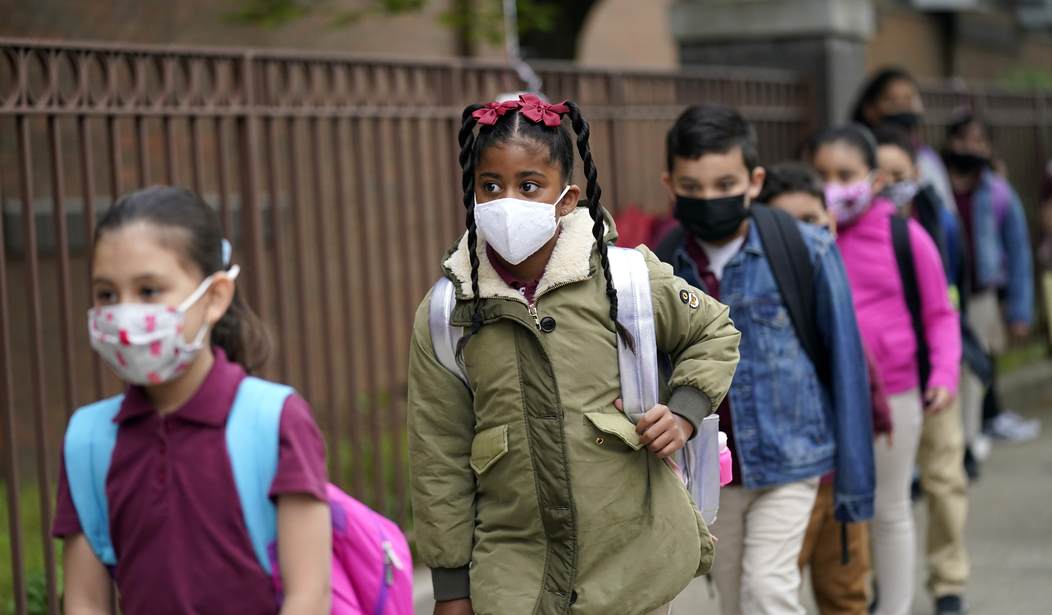(The opinions expressed in guest op-eds are those of the writer and do not necessarily represent the views of RedState.com.)
The kids are not all right. The state Board of Education released preliminary test results for last year, and the results show a system in crisis. Of course, the results came with a press release from the Department of Elementary and Secondary Education (DESE) that cautioned all of us to “review the data through an informational lens.” And we were reminded that “nothing about this past school year was typical.” When three out of four low-income students in Missouri scored below grade level on the math and English/language arts (ELA) assessments and more than four out of five Black children did the same, it is not okay to review the data through an informational lens.
Missouri children get (hopefully) one shot at kindergarten, which sets them on their educational path. They get one shot at third grade, which they need to leave as competent readers if they are going to figure out the subjects that are in front of them. They get one shot at getting ready for high school, where they’ll be expected to begin to learn independently.
What we need from DESE right now is honesty. Most eighth-graders are starting high school this fall below grade level in math and ELA. And by most, I mean that almost 70 percent did not hit the proficiency mark in math last spring. Do we imagine that our high schools will be able to right the ship for these students? Is it likely that they will breeze into Algebra I ready to solve for x?
The Missouri legislature just passed a whopping $10.4 billion budget for DESE for the upcoming school year. This includes over $3 billion in COVID-19 stimulus funds from the federal government. We are actually awash in money this year—probably over $18,000 per student when the $5 billion in local property taxes is included.
According to its presentation to the Board of Education, DESE will be using some of that money to provide teachers evidence-based training in reading and math, addressing teacher recruitment and retention, and investigating the results. While laudable and probably necessary, there doesn’t seem to be a sense of urgency in those efforts. DESE suggests that Missouri students will have to wait for teachers to get up to speed.
What if every student in the state were given an account with their name on it into which the state deposited $10,000 to $15,000, depending on the student’s needs, to be spent at the traditional public school, charter school, private school, or homeschool of their choice, including a combination of any of them? With those resources, do we think that 3 out of 4 low-income families or 8 out of 10 Black families would just accept that their kids just couldn’t get to grade level? I don’t.
You don’t need a crystal ball to see where we’re headed. We’ve already been told that 99 percent of public school districts in the state will continue to be “fully accredited” for at least a couple of more years, which seems incredibly detached from the test results of the last few years. I fully expect talk of a dramatic decrease in funding for public education when the federal stimulus funds, meant to address the specific needs of a pandemic, dry up, which is ridiculous. And, sadly, DESE’s new accountability system (MSIP 6) is even more watered down than its predecessor (MSIP 5)—so I don’t expect anything but positive (or downright delusional) spin from DESE about school and district performance in the future.
Maybe the state Board of Education is afraid that calling a public school district “low performing,” or giving a district a “D” or an “F” grade, will make the adults in that system feel bad. Worse, maybe they’re afraid the legislature won’t be willing to increase DESE’s funding if they’re honest about how badly some of our schools and districts are doing. I don’t know. But I do know that the clock is ticking for Missouri children, and that those kids can’t spare too many more years of rhetoric and platitudes, and denials about what the data clearly say.
Susan Pendergrass is the director of research and education policy at the Show-Me Institute.













Join the conversation as a VIP Member